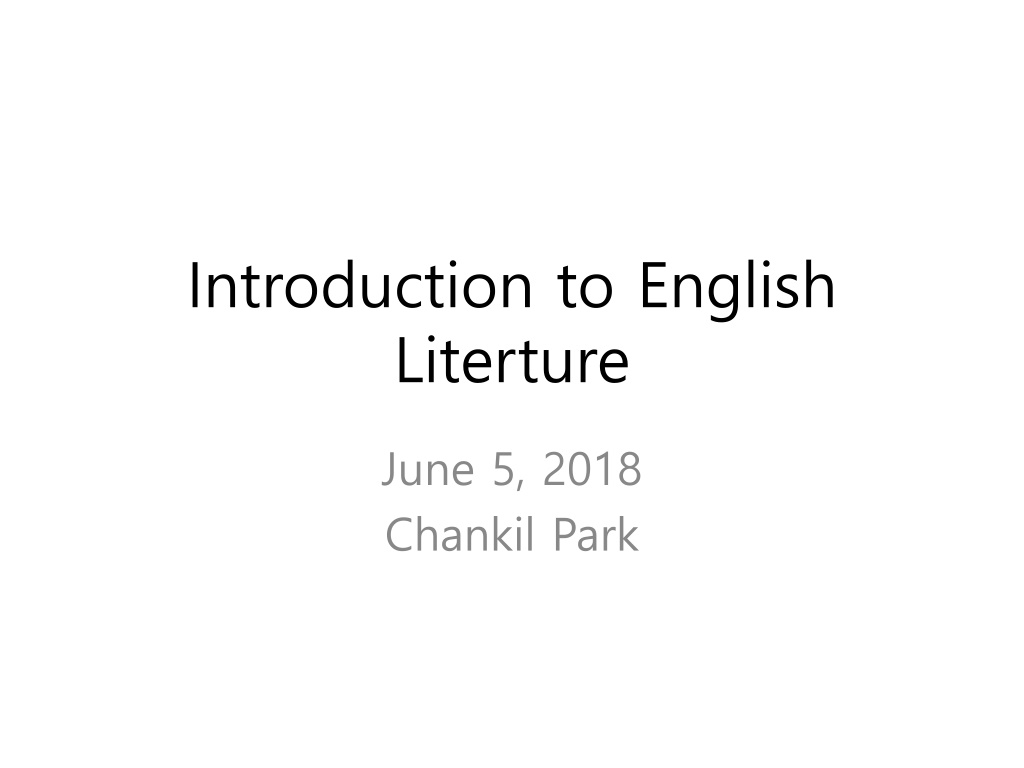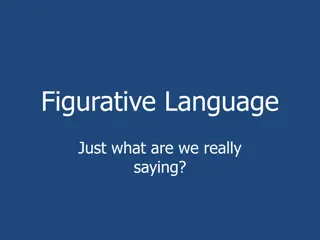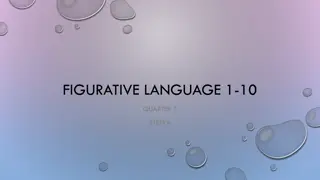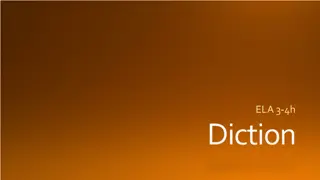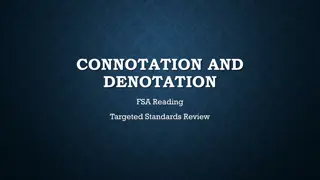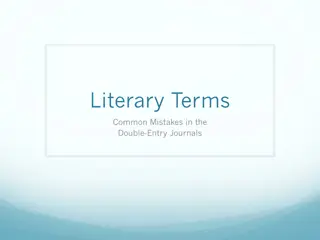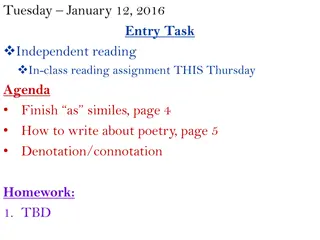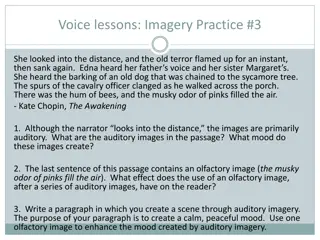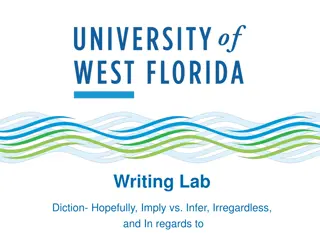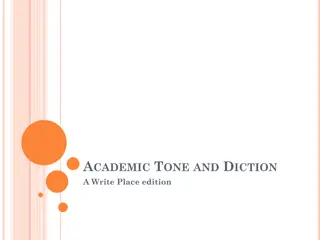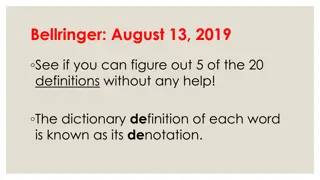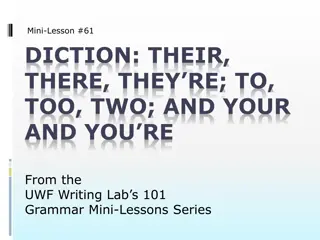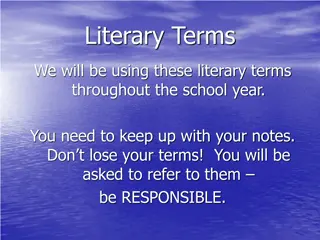Understanding Diction and Denotation in Literature
Explore the concepts of diction, denotation, and connotation in English literature through an analysis of "My Papa's Waltz." Delve into the nuances of word choice, emotional coloration, and childhood experiences portrayed in the poem, questioning the expectations versus the reality portrayed. Uncover how subtle details in word selection can reveal deeper layers of meaning and evoke strong emotions in readers.
Download Presentation

Please find below an Image/Link to download the presentation.
The content on the website is provided AS IS for your information and personal use only. It may not be sold, licensed, or shared on other websites without obtaining consent from the author. Download presentation by click this link. If you encounter any issues during the download, it is possible that the publisher has removed the file from their server.
E N D
Presentation Transcript
Introduction to English Literture June 5, 2018 Chankil Park
What is Diction? the types of words, phrases, and sentence structures, and sometimes also of figurative language, that constitute any work of literature.
Denotation vs Connotation Denotation: the unambiguous or dictionary meaning of words. Connotation: a suggestion of emotional coloration that imply our attitude and invite a similar one from our hearers.
Questions to ask Exactly how does the situation in My Papa s Waltz and the poem itself fulfill or defy your expectations? I expected a sentimental or nostalgic recollection of his father, but what he does recollect was a scene where he was waken up and forced into a bumpy round of waltz with his drunk father.
Question II How does it characterize the waltz and the speaker s feelings about it? The dance was one-sidedly enforced by his father and not really pleasant at that time, but he did his best to follow the movement to go along with his father s awkward but warm expression of his fatherly affection.
Question III Which words are most suggestive in these terms? The hand that held my wrist/ Was battered on one knuckle; because this implies that the narrator began to understand the tough life of his father s by this even though he did not show it to his family.
Question IV What clues are there in the word choice that an adult is remembering a childhood experience? How scared was the boy at the time? First 2 lines. Readers could imagine how much he was scared by wild movements in the expression such as But I hung on like death
Odd sentence construction I He does not say that the buckle scraped his ear, but rather My right ear scraped a buckle. the speaker avoids placing blame and refuses to specify any unpleasant effect.
Odd sentence construction II In lines 5 6, the connection between the romping and the pans falling is stated oddly: We romped until the pans / Slid from the kitchen shelf The speaker does not say that they knocked down the pans or imply awkwardness, but he does suggest energetic activity and duration.
Odd sentence construction III My mother s countenance/ Could not unfrown itself. A silent bystander in this male ritual, she doesn t seem frightened or angry. She seems to be holding a frown, or to have it molded on her face, as though it were part of her own ritual, and perhaps a facet of her stern character as well. The syntax implies that she has to maintain the frown, and the falling of the pans almost seems to be for her benefit. She disapproves, but she remains their audience.
